Whenever Lent begins, even though it’s a season of penitence, excitement fills a gardener’s heart. Most of us are familiar with the origins of the word Lent, meaning the lengthening of days, and in the northern hemisphere it’s a time of expecting spring! Spiritually and horticulturally, we are drawn to new life at Easter.
During the weeks of Lent we intently focus on the Stations of the Cross, the Passion of Christ. Several plants are used in a garden setting to symbolize the Passion. Here is one of the most familiar.
The perennial flowering vine Passiflora incarnata is a medium-sized vine growing to about eight feet tall and wide, sprawling in nature by spreading roots — so give it room to show its beauty. It attaches itself to fences and arbors with tendrils that twist onto the support. The flowers are breathtaking in their fragrance and intricacies, blooming from June to September.
It is listed as hardy in USDA Zones 5-9 — though it eventually dies out in my Zone 5 area — and will grow in most non-saline soils, including clay. Grow in full sun to bright open or afternoon shade in warmer climates. Watering needs are medium to low, and it’s fairly drought tolerant. It is a healthy plant with few insect or disease problems, and it’s deer resistant. The fruits, called maypops, are edible and frequently used for jellies.
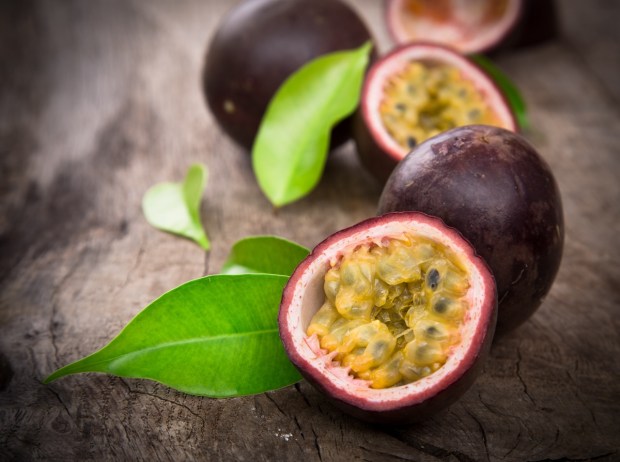
12 Symbols
The passion flower is one of the few plants that can be traced back to pre-literary times as a teaching tool for religious practices. The passion flower meanings are:
1- Ten petals representing the 10 of the 12 apostles who did not betray (Judas) Jesus or deny him (Peter).
2- The three topmost stigmas (the part of the flower that receives the pollen and rises out of the top center of the passion flower) as attached to their styles (tiny little stems) recall the three nails that impaled our Lord to the cross.
3- The five stamens that hold the anthers (the pads of pollen) together signify the five wounds of our Lord.
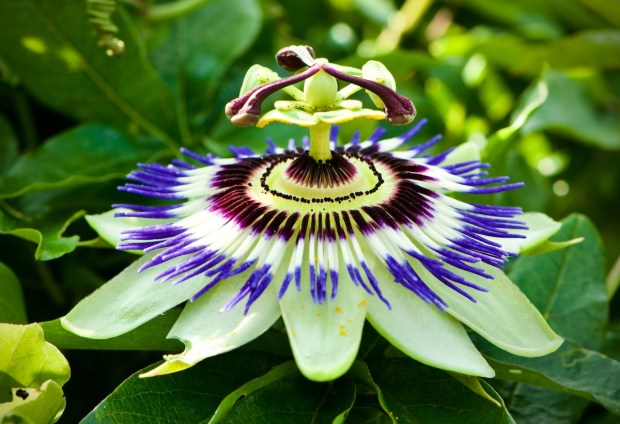
4- The anthers alone represent the sponge used to moisten Jesus’ lips.
5- The central column of the three stigmas and five anthers signifies both the post to which Jesus was scourged and also the cross on which he was hung.
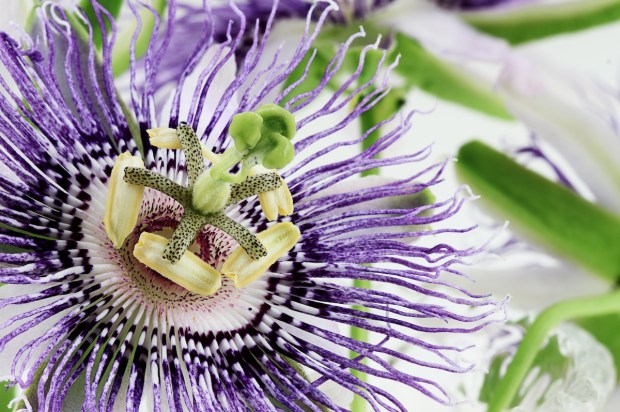
6- The 72 radial filaments are for the number of lashes Jesus received throughout his passion. They also are said to represent the crown of thorns.
7- The leaves of most species are shaped like a lance and represent the spear thrust into Jesus’ side.
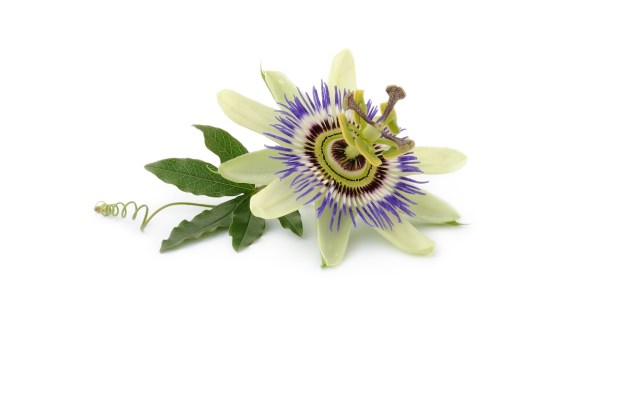
8- The red stain on the corona at the base of the central column and the red speckling on the style holding the stigma is a reminder of the blood Jesus shed.
9- The fruit of most passion flowers is round and signifies the world that Jesus came to save.
10- The tendrils symbolize Jesus holding firmly to his purpose, and being supported by God’s love.
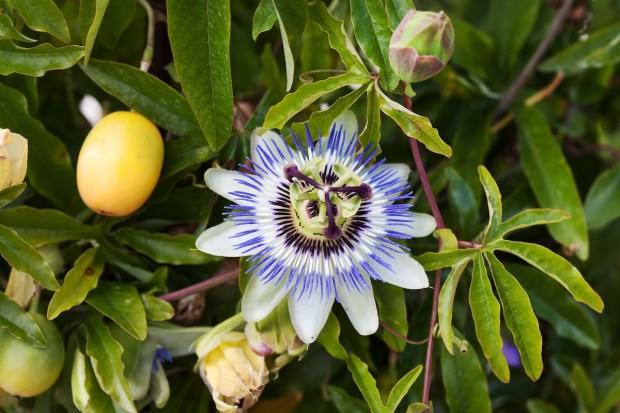
11- The wonderful fragrance is said to represent the spices that the holy women brought with them on the day of the resurrection.
12- The duration of the flower’s life is three days: the time elapsed before the resurrection of our Lord.
The passion flower is an amazing plant rich in symbolism. When we feel ourselves faltering in our faith, we can reflect on this flower and in its beauty find confidence in the greatest love story ever lived.
~
Margaret Rose Realy, Obl. OSB, is a Benedictine oblate and author. Her works include The Catholic Gardener’s Spiritual Almanac. She blogs at Morning Rose Prayer Gardens.

